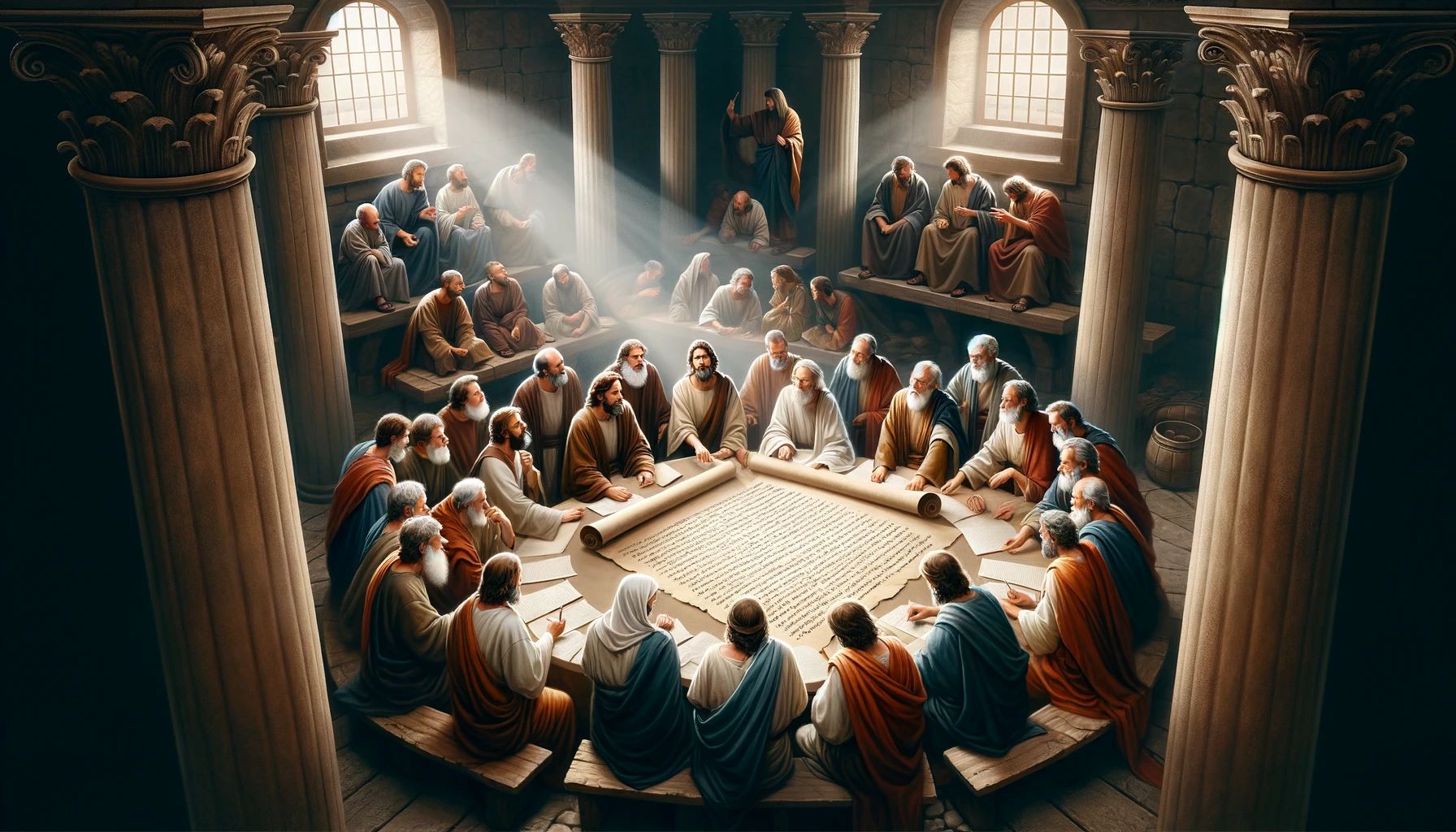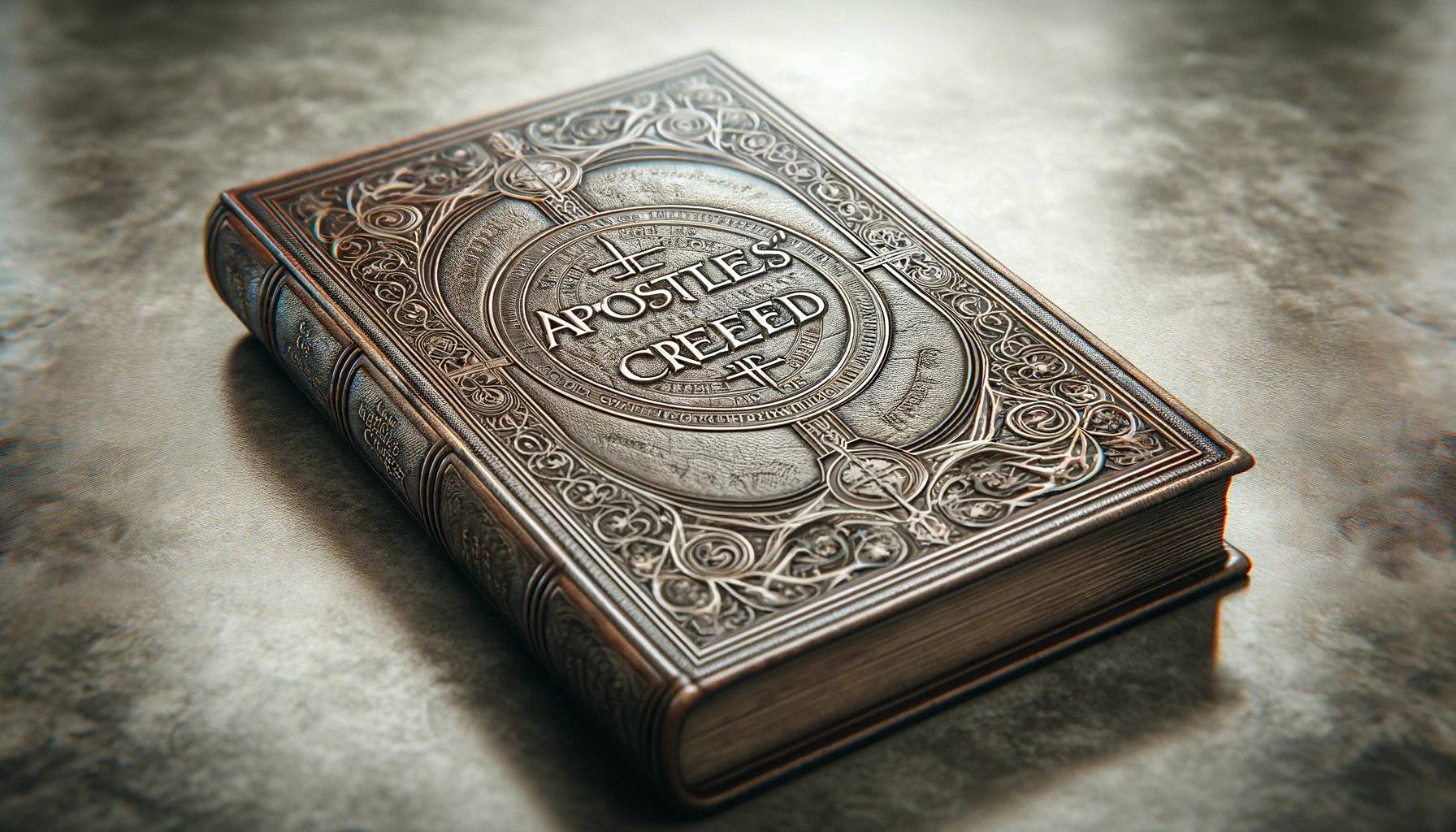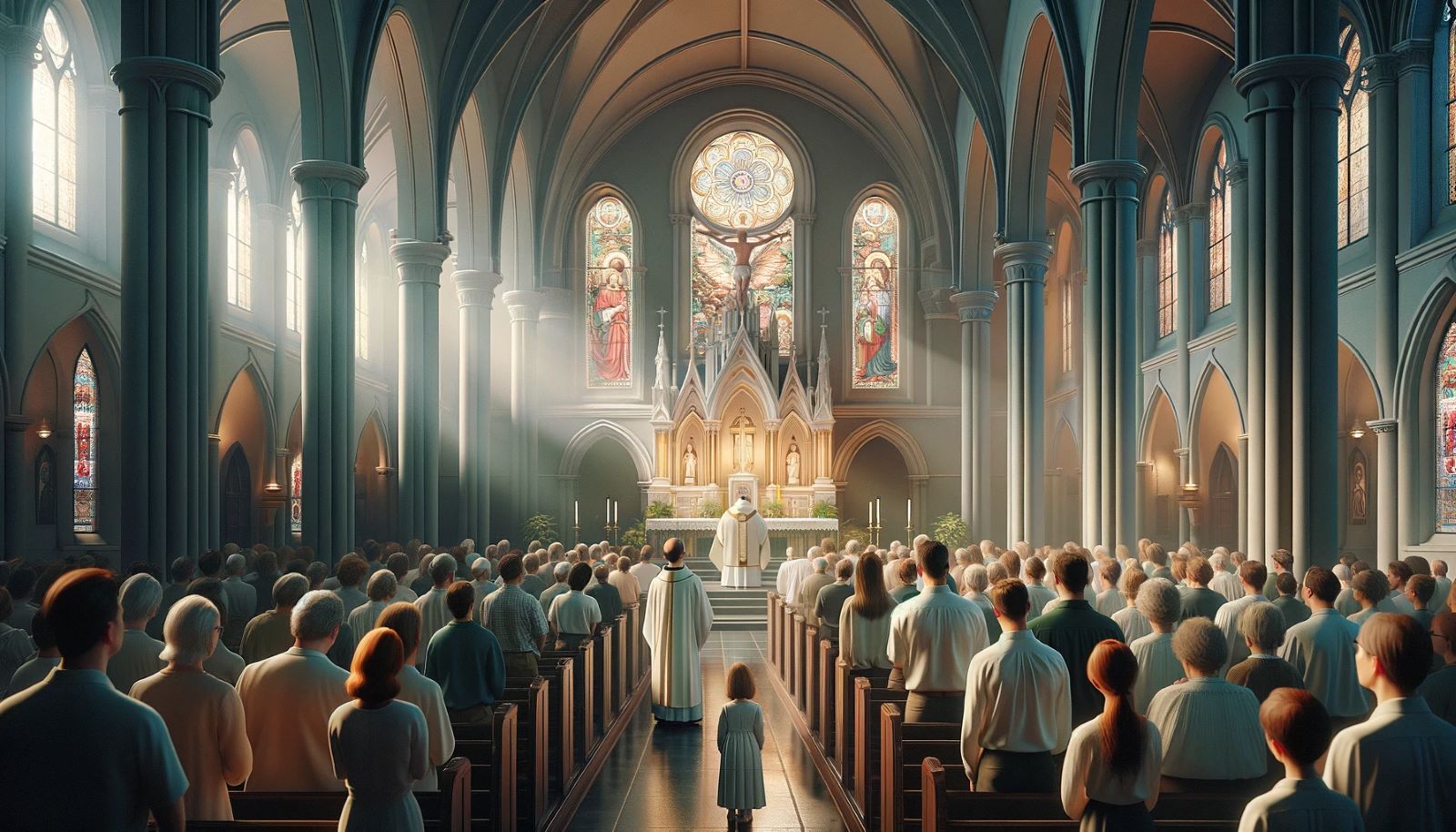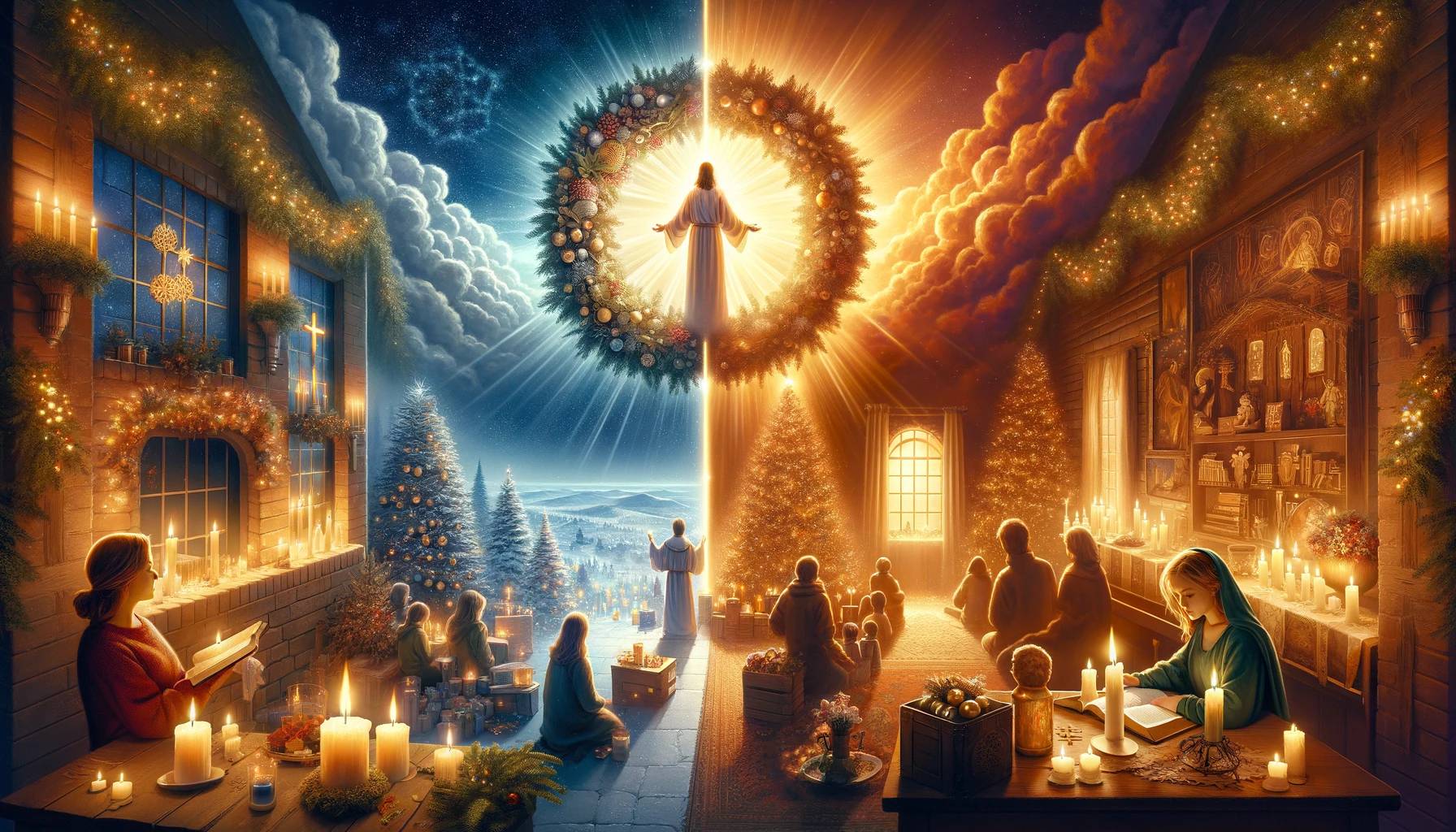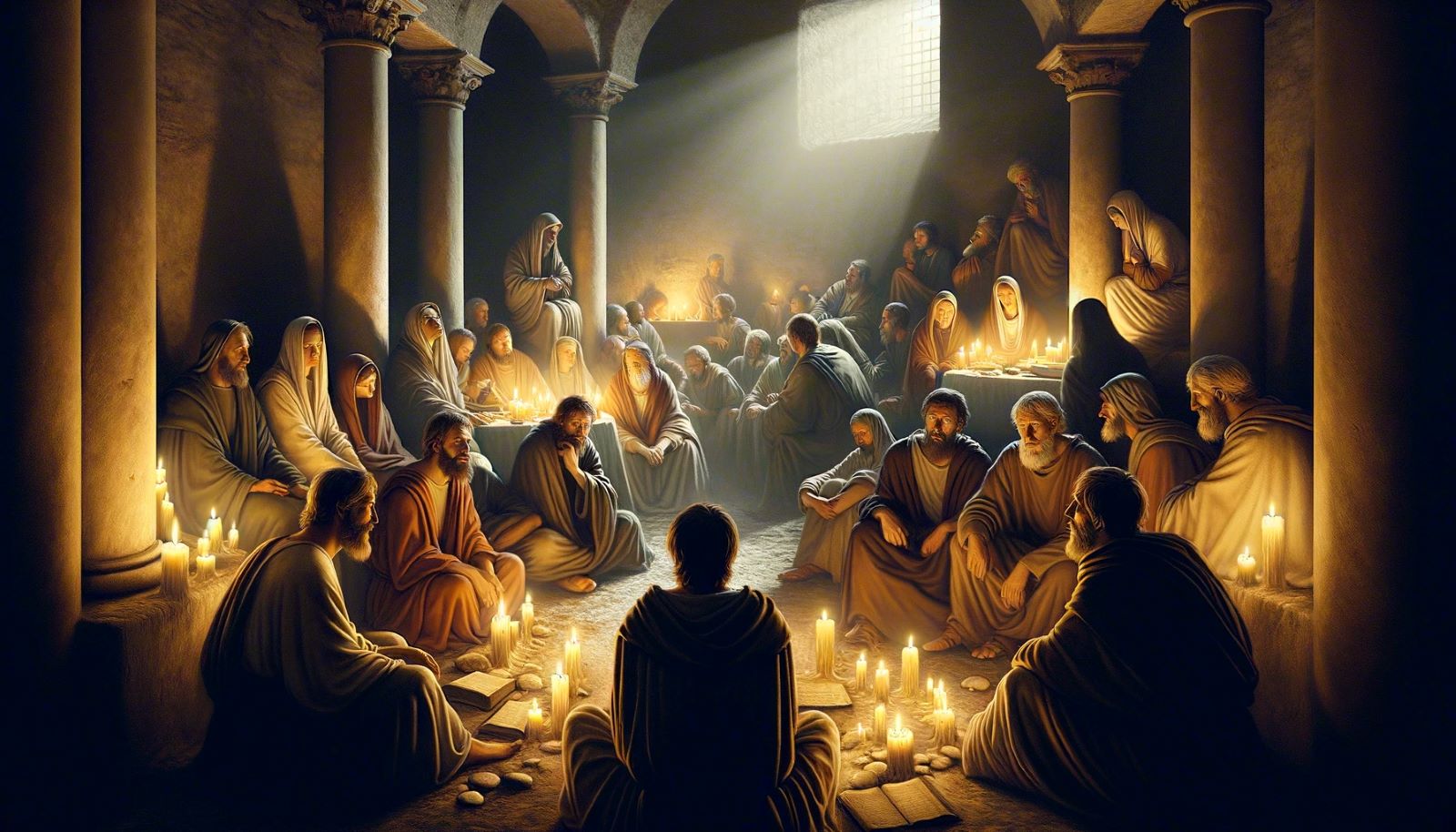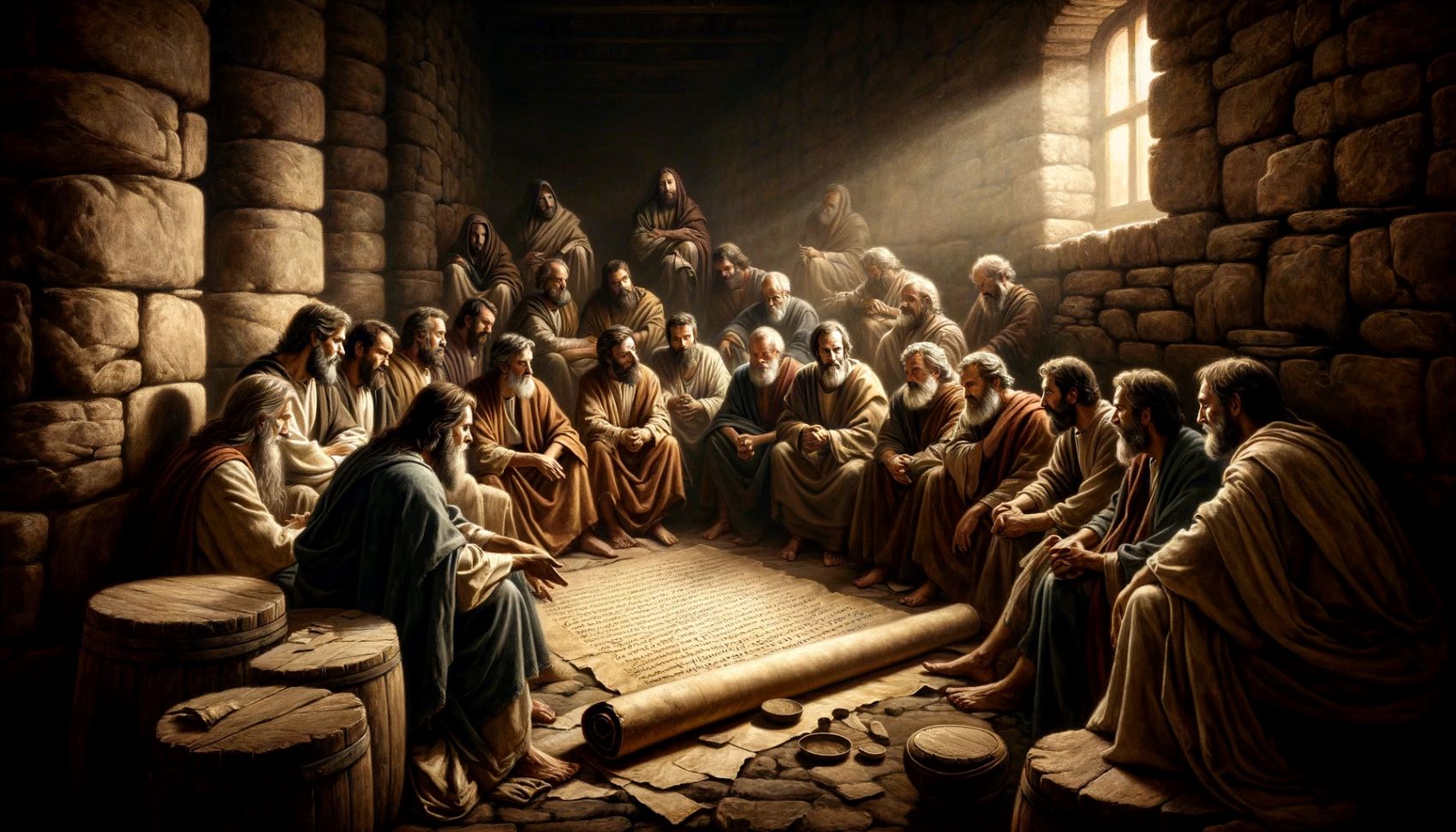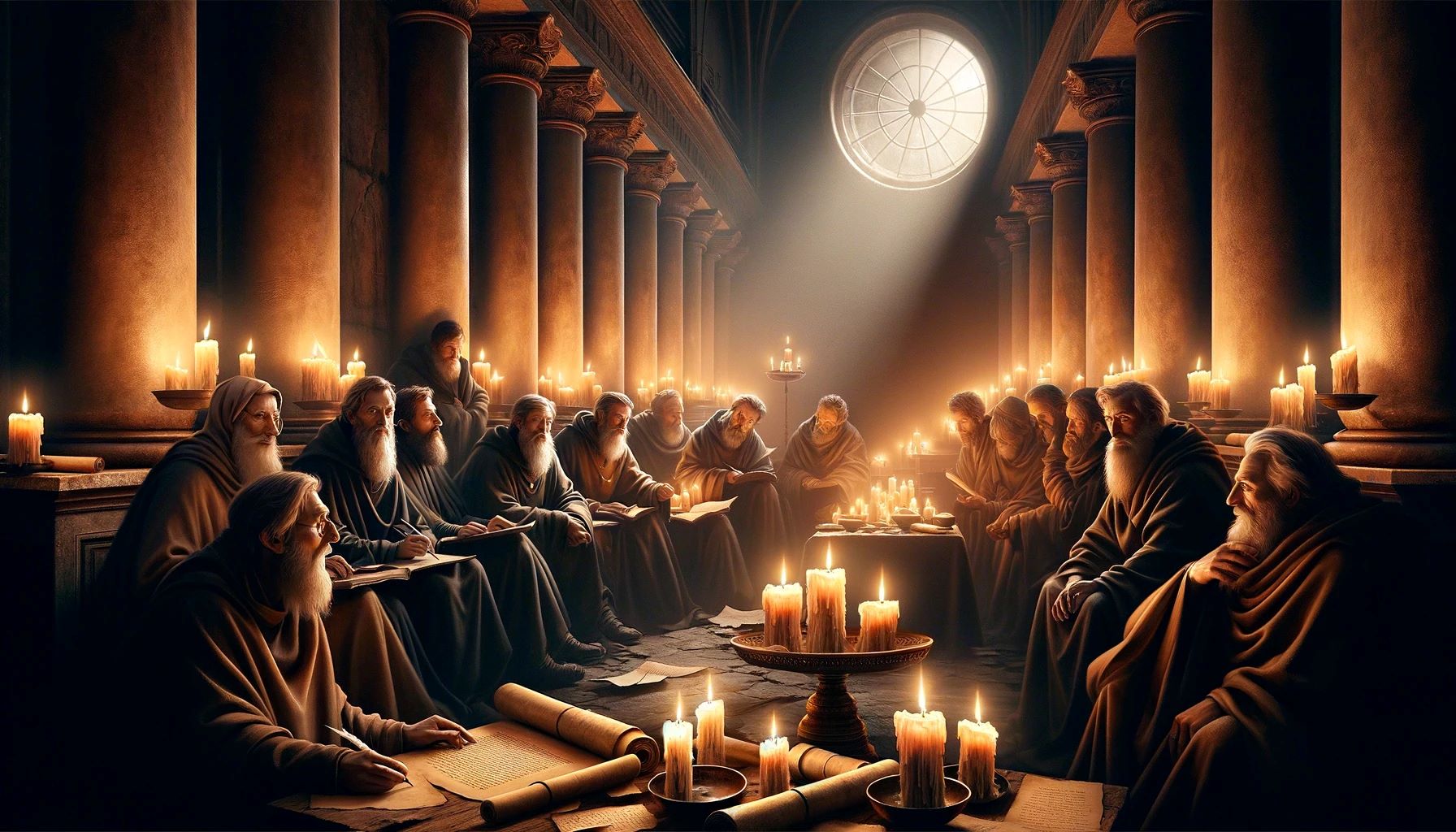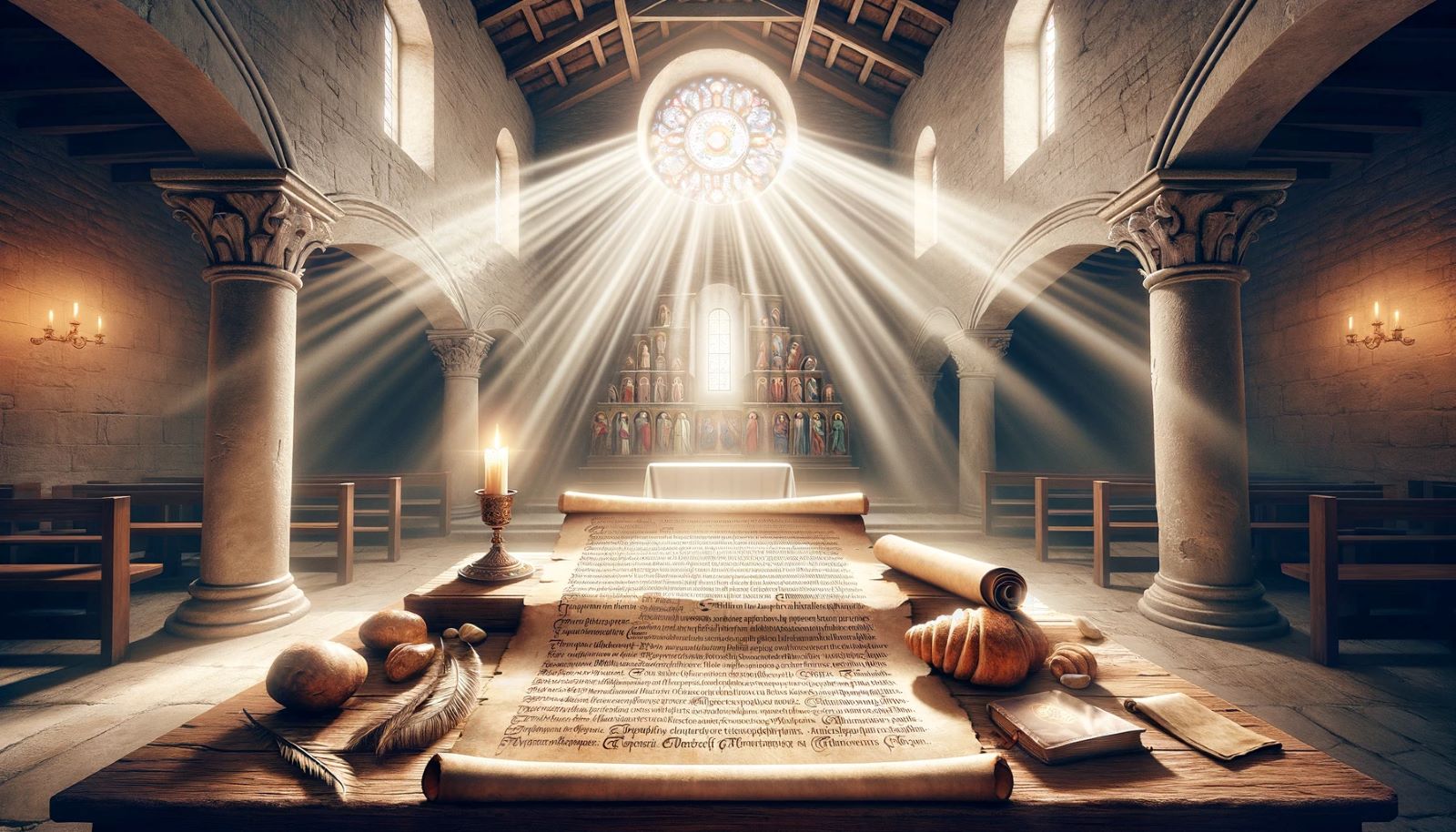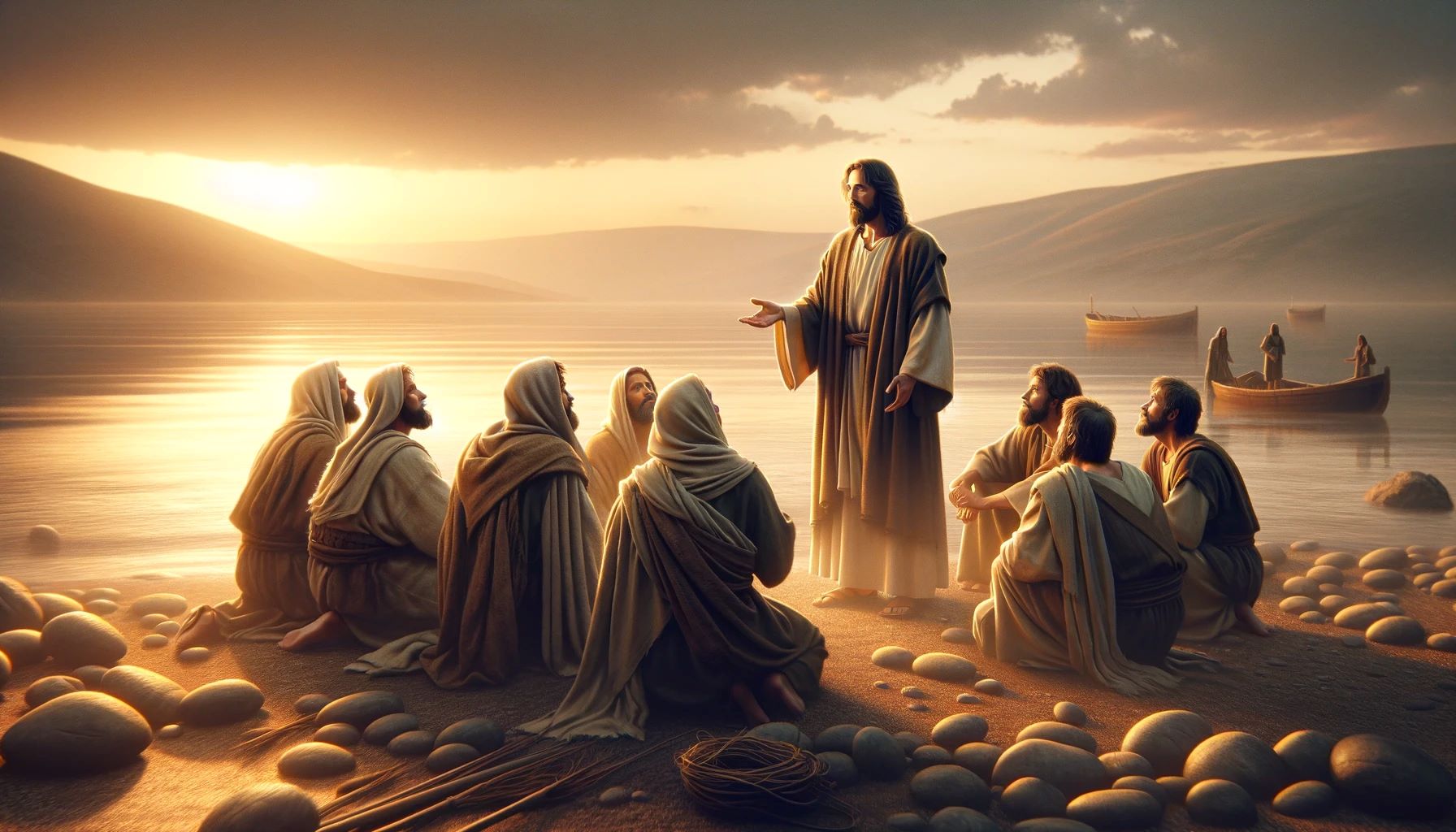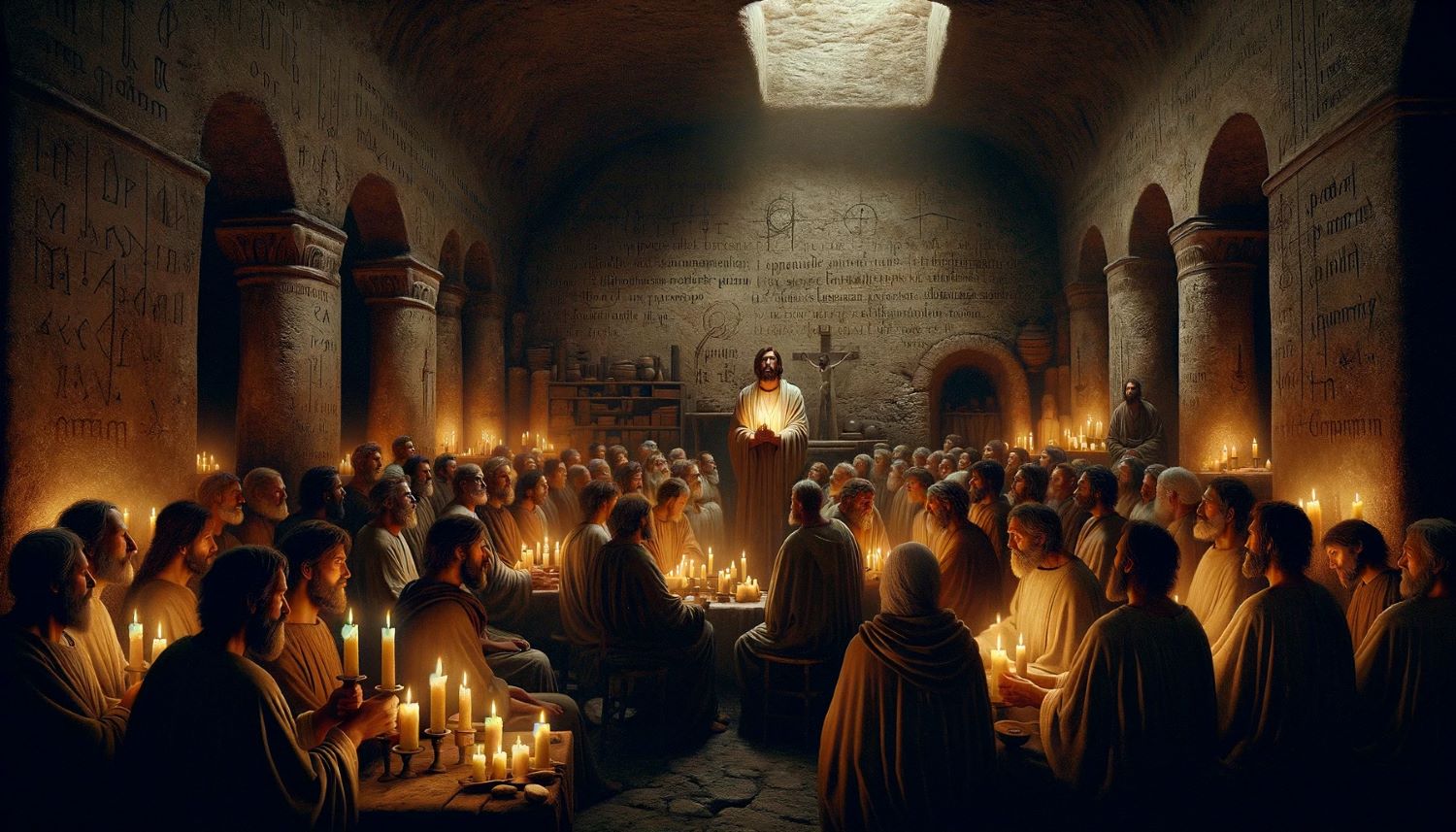Home>Bible Facts>What Is The Meaning Of The Holy Catholic Church In The Apostles Creed
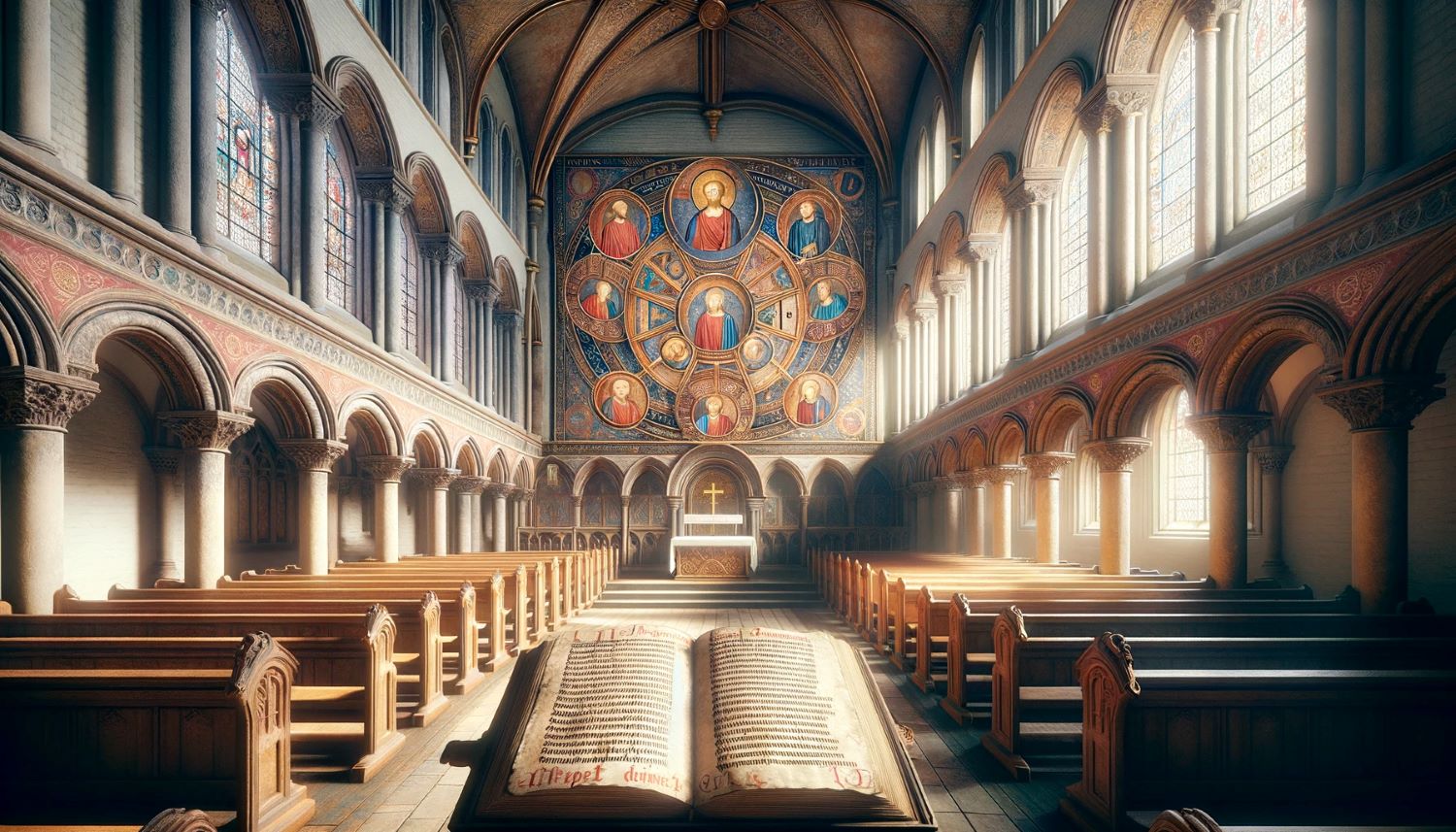

Bible Facts
What Is The Meaning Of The Holy Catholic Church In The Apostles Creed
Published: February 23, 2024
Jason DeRose, Managing Editor at Christian.net, uses his expertise in religion and journalism to deepen understanding of faith's societal impacts. His editorial leadership, coupled with a strong academic background, enriches the platform’s diverse content, earning him recognition in both journalism and religious circles.
Discover the true meaning of the Holy Catholic Church in the Apostles Creed and explore fascinating Bible facts in this insightful guide. Uncover the significance of this foundational Christian belief.
(Many of the links in this article redirect to a specific reviewed product. Your purchase of these products through affiliate links helps to generate commission for Christian.net, at no extra cost. Learn more)
Table of Contents
Introduction
The Apostles' Creed stands as a foundational statement of Christian faith, encapsulating the core beliefs of the Christian community. Within this creed, the phrase "the holy catholic Church" holds profound significance, yet its meaning may not be immediately apparent to all. In this article, we will delve into the rich historical and theological implications of this phrase, shedding light on its relevance within the Christian tradition.
The Holy Catholic Church, as expressed in the Apostles' Creed, serves as a unifying symbol for millions of believers worldwide. Its inclusion in this ancient declaration of faith underscores its enduring importance and relevance within the Christian faith. By exploring the multifaceted dimensions of this phrase, we can gain a deeper understanding of its significance and its impact on the lives of believers throughout history.
As we embark on this exploration, it is essential to approach the topic with an open mind and a willingness to engage with the complexities and nuances inherent in the concept of the Holy Catholic Church. By doing so, we can appreciate the depth of meaning encapsulated within this seemingly simple phrase and recognize its profound implications for the Christian community as a whole.
Through a careful examination of the historical context, theological underpinnings, and practical implications of the Holy Catholic Church, we aim to illuminate its role as a cornerstone of Christian belief and practice. By delving into the essence of this phrase, we can uncover the timeless truths it embodies and discern its relevance for contemporary believers seeking to deepen their understanding of the Christian faith.
In the subsequent sections, we will embark on a journey of discovery, unraveling the layers of meaning woven into the fabric of the Holy Catholic Church. By doing so, we can gain insight into its significance as a unifying force within the Christian tradition and appreciate its enduring relevance for believers across the globe.
The Apostles Creed: A Brief Overview
The Apostles' Creed stands as a timeless testament to the foundational beliefs of the Christian faith. Its origins can be traced back to the early centuries of Christianity, where it emerged as a succinct yet comprehensive statement of the core tenets held by believers. Composed in the form of a creed, it serves as a declaration of faith, encapsulating the essential doctrines that unite Christians across denominational boundaries.
This ancient creed is structured around three key themes: the Father, the Son, and the Holy Spirit. Each section articulates fundamental beliefs about the nature of God and the redemptive work attributed to each person of the Trinity. The Creed begins with an affirmation of faith in God the Father, the almighty creator of heaven and earth. It then proceeds to profess belief in Jesus Christ, the only Son of God, who was conceived by the Holy Spirit, born of the Virgin Mary, suffered under Pontius Pilate, was crucified, died, and was buried. The Creed culminates in a declaration of faith in the Holy Spirit, the holy catholic Church, the communion of saints, the forgiveness of sins, the resurrection of the body, and the life everlasting.
The Apostles' Creed serves as a unifying symbol for Christians worldwide, transcending cultural and theological differences. Its concise yet profound articulation of core Christian beliefs has rendered it a foundational document within the Christian tradition. Through the centuries, it has provided a framework for doctrinal instruction, public confession of faith, and a source of unity amidst diversity.
The enduring significance of the Apostles' Creed lies in its ability to encapsulate the essence of Christian faith in a succinct and accessible manner. Its widespread use in liturgical settings, catechetical instruction, and personal devotion attests to its enduring relevance and impact. As a concise summary of essential Christian doctrines, the Apostles' Creed continues to serve as a touchstone for believers, guiding their understanding of the faith and fostering a sense of unity within the diverse tapestry of the Christian community.
The Holy Catholic Church: Exploring the Meaning
The phrase "the holy catholic Church" within the Apostles' Creed carries profound significance, encompassing both historical and theological dimensions that resonate throughout the Christian tradition. To explore its meaning, it is essential to dissect the phrase into its constituent elements.
The term "holy" denotes the sacred and set-apart nature of the Church. It signifies the Church's consecration and sanctity, emphasizing its role as a vessel of divine grace and spiritual transformation. This attribute underscores the ethical and moral expectations placed upon the Church, calling its members to embody holiness in their lives and interactions.
The term "catholic" derives from the Greek word "katholikos," meaning universal or encompassing the whole. In this context, it conveys the idea of the Church's universality and inclusivity, transcending geographical, cultural, and temporal boundaries. It emphasizes the unity of all believers under the banner of Christ, irrespective of their diverse backgrounds and traditions.
When combined, the phrase "the holy catholic Church" encapsulates the concept of a sanctified and universal community of believers. It reflects the Church's dual nature as a consecrated institution and a global communion of faithful followers. This understanding aligns with the biblical portrayal of the Church as the body of Christ, called to embody holiness and unity in its mission to proclaim the gospel and extend God's kingdom on earth.
Furthermore, the term "Church" originates from the Greek word "ekklesia," signifying an assembly or gathering of people called out for a specific purpose. In the Christian context, it refers to the assembly of believers who are called out of the world to form a distinct community centered on their shared faith in Jesus Christ. This communal aspect underscores the relational and communal nature of the Church, highlighting the interconnectedness and mutual responsibility of its members.
In essence, the phrase "the holy catholic Church" conveys the idea of a sanctified, universal, and communal body of believers united in their devotion to Christ and their commitment to fulfilling His redemptive mission in the world. It serves as a reminder of the Church's sacred calling, its inclusive embrace of diverse believers, and its collective identity as the living expression of Christ's presence in the world.
The Historical Context of the Holy Catholic Church
The historical context of the Holy Catholic Church is intricately woven into the tapestry of early Christianity, bearing witness to the evolution and expansion of the Christian community in the ancient world. The term "catholic" in the Apostles' Creed reflects the universal nature of the Church, transcending geographical and cultural boundaries to encompass believers from diverse regions and backgrounds.
During the first centuries of the Christian era, the fledgling Christian community faced persecution and adversity, yet it also experienced remarkable growth and resilience. The early followers of Jesus Christ, inspired by the teachings of the apostles and fueled by their unwavering faith, established vibrant Christian communities across the Mediterranean world. These communities, often gathering in homes and catacombs, formed the nucleus of the early Church and laid the groundwork for its enduring legacy.
The concept of catholicity, or universality, emerged as a defining characteristic of the early Christian Church. As the message of Jesus spread throughout the Roman Empire and beyond, it attracted adherents from diverse cultural and ethnic backgrounds. This inclusivity and universality distinguished the Christian movement from other religious sects of the time, positioning it as a global faith with the potential to transcend social barriers and unite disparate communities under a common banner of faith.
The historical context of the Holy Catholic Church also encompasses pivotal events such as the Council of Nicaea in 325 AD, where church leaders convened to address theological controversies and affirm key doctrinal tenets. The Nicene Creed, a foundational statement of Christian belief, further solidified the Church's catholic identity by articulating its core convictions in a manner that resonated with believers across the vast expanse of the Roman Empire.
Furthermore, the missionary endeavors of early Christian leaders, including the apostle Paul and other evangelists, played a crucial role in disseminating the message of the gospel to distant lands and diverse cultural settings. This missionary zeal contributed to the expansion of the Church's influence and the establishment of Christian communities in regions far beyond its initial epicenter in the eastern Mediterranean.
In summary, the historical context of the Holy Catholic Church reflects a dynamic and expansive movement that transcended geographical, cultural, and linguistic barriers to embrace believers from all walks of life. This historical backdrop underscores the enduring universality of the Church and its capacity to adapt and thrive in diverse sociocultural contexts, laying the foundation for its continued relevance and impact in the modern era.
Theological Implications of the Holy Catholic Church
The phrase "the holy catholic Church" within the Apostles' Creed carries profound theological implications that resonate deeply within the Christian tradition. At its core, the theological significance of the Holy Catholic Church encompasses the following key dimensions:
-
Unity and Universality: The term "catholic" in the context of the Holy Catholic Church underscores the universal nature of the Christian faith. It emphasizes the unity of believers across diverse cultures, languages, and traditions, highlighting the inclusive embrace of all who profess faith in Jesus Christ. This theological implication reaffirms the Church's role as a unifying force that transcends human divisions, fostering a sense of global communion and solidarity among believers.
-
Sacred Community: The designation of the Church as "holy" underscores its consecrated nature and its calling to embody the virtues of righteousness, purity, and sanctification. This theological implication emphasizes the ethical and moral expectations placed upon the Church and its members, calling them to exemplify the transformative power of God's grace in their lives. It serves as a reminder of the Church's sacred mission to reflect the character of Christ and to serve as a beacon of spiritual light in a world marred by sin and brokenness.
-
Ecclesiology and Communion: The theological implications of the Holy Catholic Church extend to the realm of ecclesiology, the study of the nature and purpose of the Church. It underscores the communal and relational aspects of the Church, emphasizing the interconnectedness of its members and their shared participation in the redemptive mission of Christ. This theological dimension highlights the Church as a living organism, united in its devotion to Christ and its collective responsibility to advance the kingdom of God on earth.
-
Historical Continuity: The theological implications of the Holy Catholic Church also encompass the concept of historical continuity, linking contemporary believers to the rich tapestry of Christian faith and practice that spans centuries. It underscores the enduring legacy of the Church, rooted in the apostolic tradition and the steadfast proclamation of the gospel throughout history. This theological dimension reinforces the sense of belonging and inheritance that believers derive from their participation in the broader narrative of the Church's journey through time.
In essence, the theological implications of the Holy Catholic Church resonate with the core tenets of Christian faith, emphasizing its universal, sacred, communal, and historical dimensions. This phrase serves as a theological touchstone, reminding believers of the profound implications of their membership in the global body of Christ and their collective responsibility to embody the transformative power of the gospel in the world.
Read more: What Are The Words Of The Apostles Creed
The Role of the Holy Catholic Church in Christian Faith
The Holy Catholic Church plays a pivotal role in the expression and embodiment of Christian faith, serving as a dynamic and transformative force within the lives of believers and the broader global community. Its role encompasses multifaceted dimensions that resonate throughout the Christian tradition, shaping the spiritual, communal, and missional aspects of faith.
Spiritual Nourishment and Guidance
Central to the role of the Holy Catholic Church is its function as a spiritual oasis, providing nourishment, guidance, and sustenance for believers on their journey of faith. Through the sacraments, liturgical worship, and pastoral care, the Church offers a nurturing environment where individuals can encounter the presence of God, receive spiritual nourishment, and find solace in times of joy and sorrow. The Church serves as a spiritual anchor, grounding believers in the timeless truths of the Christian faith and equipping them to navigate life's complexities with resilience and hope.
Communal Identity and Fellowship
The Holy Catholic Church fosters a sense of communal identity and fellowship among believers, nurturing a vibrant tapestry of relationships and shared experiences. It serves as a gathering place for the diverse body of Christ, transcending social, cultural, and ethnic barriers to create a unified community of faith. Through worship, fellowship, and mutual support, the Church cultivates an environment where individuals can find belonging, acceptance, and a sense of purpose within the broader context of the Christian family. This communal dimension of the Church's role reinforces the interconnectedness of believers and underscores the importance of mutual care and accountability within the body of Christ.
Mission and Witness
Furthermore, the Holy Catholic Church embodies a missional imperative, calling believers to actively engage in the redemptive mission of Christ in the world. It serves as a catalyst for social transformation, justice advocacy, and compassionate outreach, mobilizing its members to be agents of positive change and bearers of God's love in their communities. The Church's role in fostering a missional mindset empowers believers to embody the values of compassion, mercy, and justice, extending the transformative impact of the gospel beyond the confines of its physical structures and into the fabric of society.
Preservation of Tradition and Heritage
Additionally, the Holy Catholic Church plays a vital role in preserving the rich tradition and heritage of Christian faith, safeguarding the teachings of the apostles and the wisdom of the early Church fathers. Through its liturgical practices, theological education, and historical continuity, the Church serves as a custodian of the faith, ensuring that the timeless truths of Christianity are passed down from generation to generation. This role reinforces the Church's commitment to upholding the integrity of Christian doctrine and practice, safeguarding the essence of the faith for future believers.
In essence, the Holy Catholic Church's role in Christian faith encompasses spiritual nourishment, communal fellowship, missional engagement, and the preservation of tradition. Its multifaceted contributions resonate with the core values of Christian faith, empowering believers to live out their calling as ambassadors of Christ and participants in the ongoing narrative of God's redemptive work in the world.
Conclusion
In conclusion, the phrase "the holy catholic Church" within the Apostles' Creed encapsulates a profound and multifaceted concept that reverberates throughout the Christian tradition. Its historical, theological, and practical implications underscore its enduring relevance and significance for believers across the globe. The Holy Catholic Church serves as a unifying symbol, transcending cultural and geographical boundaries to encompass a diverse and inclusive community of faith.
From a historical perspective, the concept of catholicity emerged as a defining characteristic of the early Christian Church, reflecting its universal outreach and capacity to embrace believers from varied backgrounds. This historical context underscores the Church's resilience and adaptability, as it navigated through periods of persecution and expansion, ultimately establishing a global presence that continues to shape the contemporary Christian landscape.
The theological implications of the Holy Catholic Church emphasize its role as a sacred, universal, and communal body of believers united in their devotion to Christ. This theological richness underscores the Church's mission to embody holiness, foster unity, and extend the transformative message of the gospel to all corners of the world. The Church's ecclesiological significance as a living expression of Christ's presence underscores its communal and missional dimensions, empowering believers to engage in the ongoing narrative of God's redemptive work.
Furthermore, the Holy Catholic Church plays a pivotal role in the expression and embodiment of Christian faith, serving as a spiritual oasis, a nurturing community, a catalyst for social transformation, and a guardian of tradition. Its multifaceted contributions resonate with the core values of Christian faith, empowering believers to live out their calling as ambassadors of Christ and participants in the ongoing narrative of God's redemptive work in the world.
In essence, the Holy Catholic Church stands as a testament to the enduring legacy of Christian faith, embodying the timeless truths and transformative power of the gospel. Its inclusivity, resilience, and unwavering commitment to the mission of Christ underscore its relevance as a unifying force within the diverse tapestry of the Christian community. As believers continue to profess their faith through the Apostles' Creed, the phrase "the holy catholic Church" serves as a reminder of the sacred calling, universal embrace, and communal identity that define the essence of Christian faith and practice.
